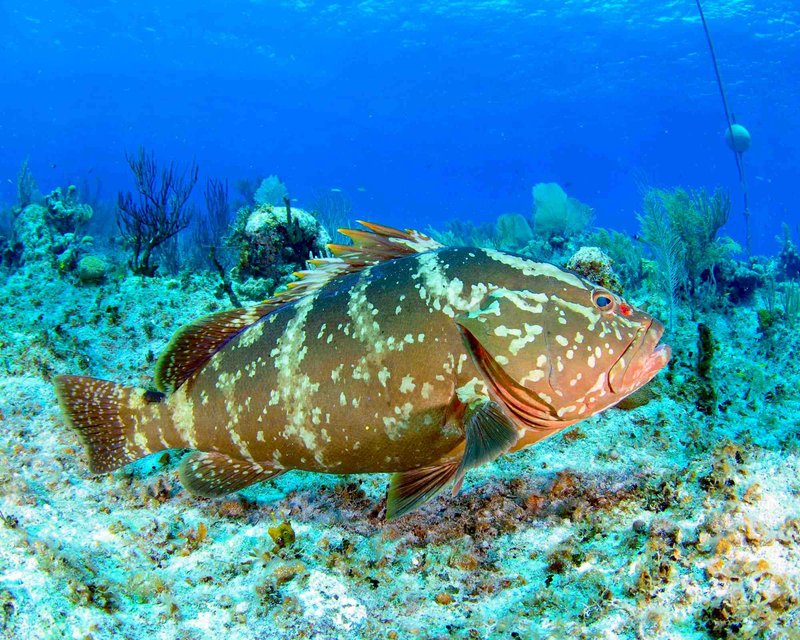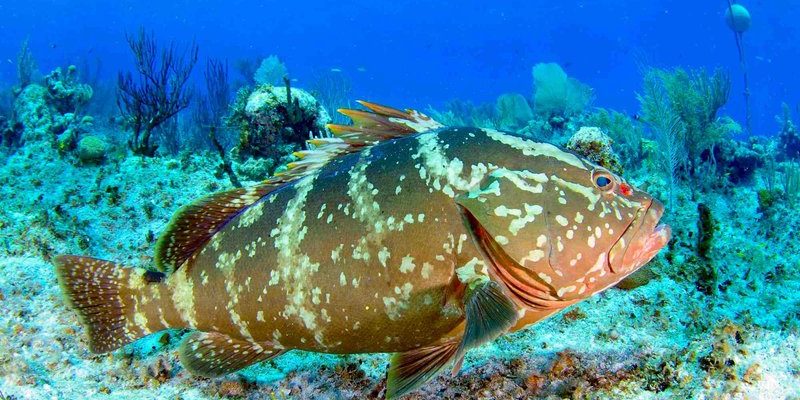
Groupers, belonging to the Epinephelidae family, prefer warm waters and often call coral reefs their home. However, several factors threaten their existence. From environmental changes to fishing practices, the threats are serious and interconnected. Here’s the thing: understanding these challenges can empower us to take action and ensure that groupers continue to thrive. So, grab your favorite drink—maybe a tropical smoothie—and let’s explore the common threats facing groupers in the wild.
Overfishing: A Critical Challenge
Overfishing is like a bull in a china shop for groupers. This practice refers to catching fish at a rate faster than they can reproduce, and it’s particularly harmful to groupers. These fish generally grow slowly and take years to reach maturity, making them highly susceptible to population declines. When fishers catch more groupers than can be born, the fish population dwindles.
The demand for grouper in restaurants and markets drives commercial fishing to unsustainable levels. Many fishers use methods like bottom trawling, which can destroy the seabed and harm not only groupers but also the entire reef ecosystem. Imagine a beautiful garden being bulldozed for a new construction project. That’s what happens to grouper habitats when careless fishing methods are used.
So, what can be done about this? Supporting sustainable fishing practices is a crucial step. Choosing to eat seafood that comes from well-managed fisheries can help reduce the demand for overfished species. Sustainable seafood organizations often provide lists of fish that are safe to eat, including ways to choose groupers from sources that prioritize their populations.
Habitat Loss: The Invisible Enemy
Next up is habitat loss, a quieter but just as dangerous threat to groupers. These fish rely on coral reefs for shelter, food, and breeding grounds. Unfortunately, human activities like coastal development, pollution, and climate change are wreaking havoc on these vital ecosystems. Picture a world where your home’s foundations are crumbling. That’s what groupers experience when their reefs are damaged.
Coral reefs provide not only homes for groupers but also essential shelter for many marine species. When reefs become bleached or decimated, the entire marine community suffers. Groupers lose their breeding grounds and food sources, leading to a decline in their populations. Plus, without healthy reefs, the overall ocean ecosystem becomes less resilient, impacting everything from water quality to fish diversity.
We can all play a role in protecting coral reefs. Simple actions like reducing plastic use, participating in beach clean-ups, and advocating for marine protected areas can make a difference. Even a small step, like supporting legislation aimed at preserving marine habitats, contributes to the greater good.
Climate Change: A Rising Tide of Worry
Honestly, we can’t talk about threats to groupers without mentioning climate change. Rising sea temperatures and ocean acidification pose significant risks to these fish. As water temperatures increase, coral reefs face bleaching, which weakens the ecosystem that groupers rely on for survival. Imagine living in a home that’s constantly getting hotter and more uncomfortable—it’s a struggle to thrive.
Moreover, ocean acidification, caused by excess carbon dioxide, affects the ability of corals and other marine creatures to build their skeletons. This can lead to weaker reefs and, ultimately, reduced habitats for groupers. The effects of climate change create a ripple effect that can alter food chains and ecosystem dynamics.
So, what can we do about climate change? Every little bit helps. Reducing energy consumption, utilizing public transportation, and supporting renewable energy initiatives can contribute to combating climate change. When we work together, we have the power to protect not just groupers but all marine life.
Illegal Fishing: The Shadowy Threat
Illegal fishing is another danger lurking in the depths. This practice often goes unnoticed but has devastating effects on grouper populations. Poachers frequently target areas with strict fishing regulations, often exploiting local communities who rely on fish for their livelihoods. This type of fishing can involve using harmful methods that not only catch groupers but also damage their habitats.
The impact of illegal fishing stretches far beyond just missing fish. It affects local economies, disrupts communities, and can lead to diminished fish stocks for everyone. Imagine a community struggling because outsiders are taking what belongs to them. That’s the reality for many coastal communities facing illegal fishing practices.
You might wonder how to combat illegal fishing. Supporting organizations that advocate for proper enforcement of fishing laws can help create a fairer system. Additionally, raising awareness about the issue can encourage responsible consumer habits, like asking where your seafood comes from before buying it.
Pollution: The Unseen Poison
Pollution is like a slow poison in the ocean. From plastic waste to chemical runoff, pollution can severely impact grouper health and habitats. Groupers are susceptible to ingesting harmful substances found in polluted waters, which can lead to health problems for the fish and those who eat them. Picture a beautiful lake that’s now filled with trash; it’s not just an eyesore, but it poses real dangers.
Chemicals can alter fish behavior, affecting their ability to find food and reproduce. Additionally, when pollution seeps into the ocean, it can lead to dead zones, where oxygen levels are too low for marine life to thrive. This further reduces the healthy habitats available for groupers.
So, how can we fight pollution? Simple changes in our daily lives, like reducing plastic use, recycling, and supporting clean-up initiatives, can have a significant impact. We can also advocate for stricter regulations on industrial discharges, which can help protect the oceans.
Conservation Efforts: A Beacon of Hope
Now, here’s the good news: conservation efforts are underway to protect groupers and their habitats. Many organizations are working tirelessly to create marine protected areas (MPAs) to safeguard essential ecosystems. These areas allow fish populations to recover and thrive, acting as safe havens from fishing pressures.
Community involvement is crucial in these efforts. Local fishers often play a vital role in monitoring fish populations and enforcing regulations. When communities are educated about the importance of sustainable practices, they become powerful advocates for marine conservation. Think of it as a team effort—everyone plays a part in ensuring the survival of groupers.
Supporting conservation initiatives, whether through donations or volunteering, can help make a difference. By becoming informed and engaged, we can all contribute to protecting groupers and maintaining healthy ocean ecosystems.
The threats to grouper populations in the wild are serious, but they’re not insurmountable. By understanding issues like overfishing, habitat loss, climate change, illegal fishing, and pollution, we can take meaningful action to protect these beautiful fish. Every small effort counts, whether it’s choosing sustainable seafood, reducing plastic, or advocating for protective legislation.
As we move forward, let’s keep the conversation alive and inspire others to join the fight against these threats. With our combined efforts, we can ensure that groupers continue to swim gracefully through our oceans for generations to come. After all, preserving marine life benefits us all, making our planet a healthier, more vibrant place.

